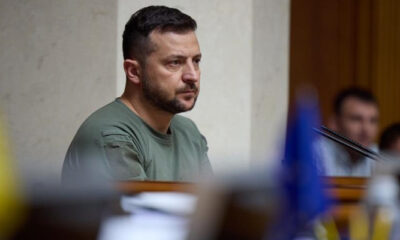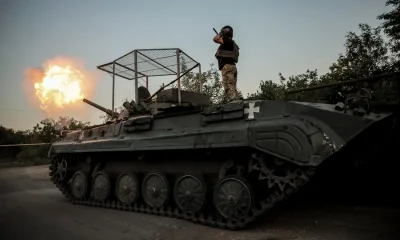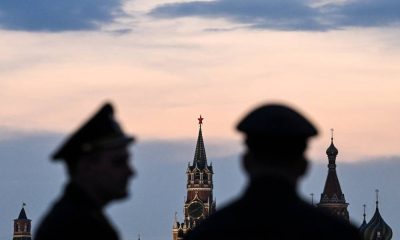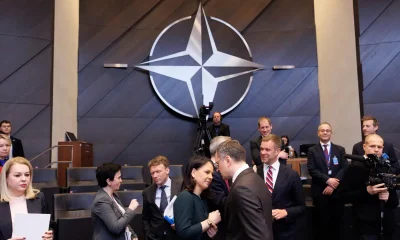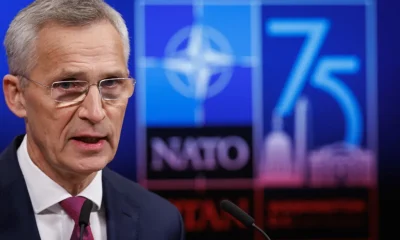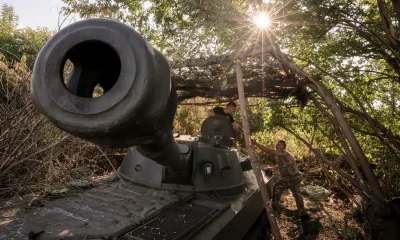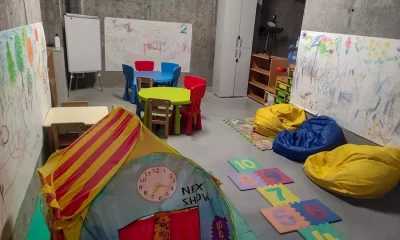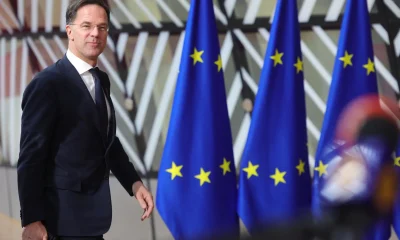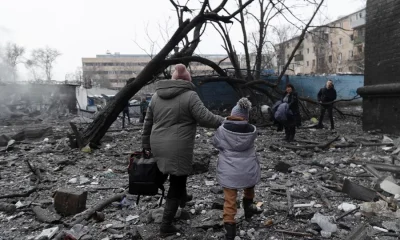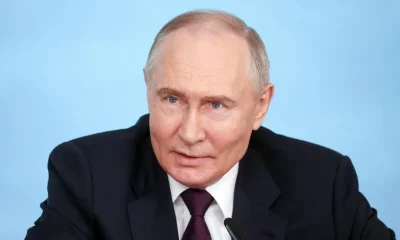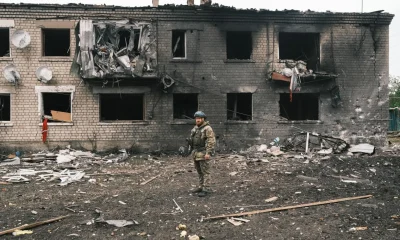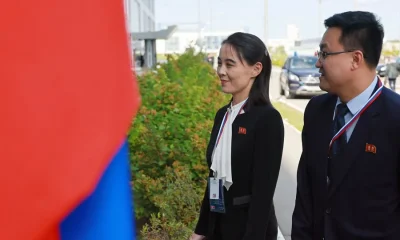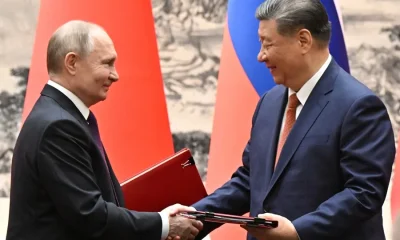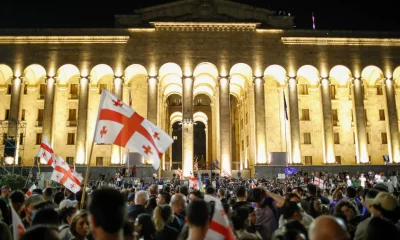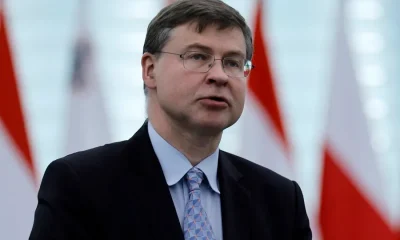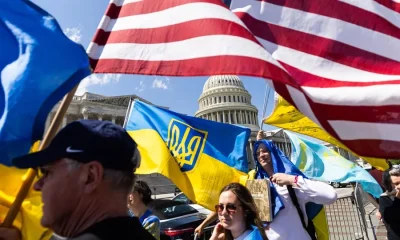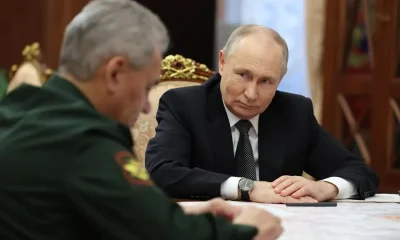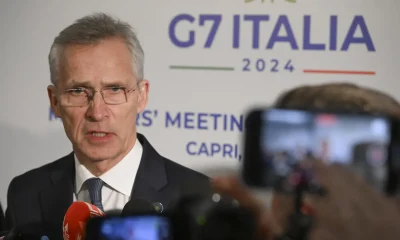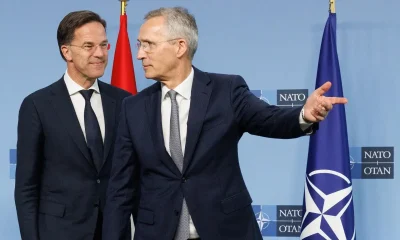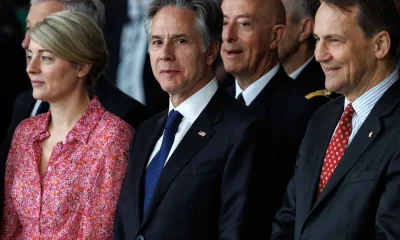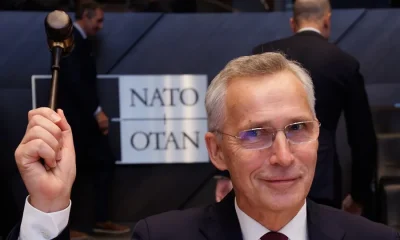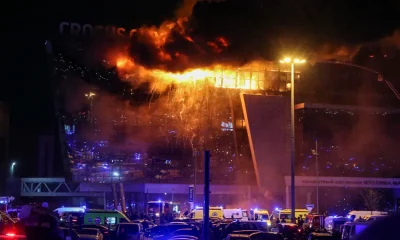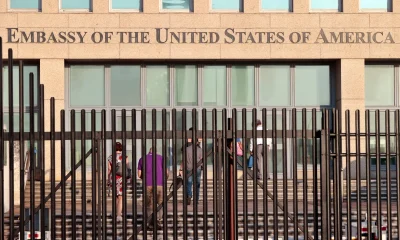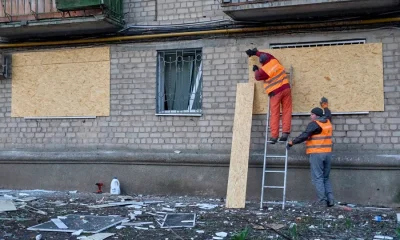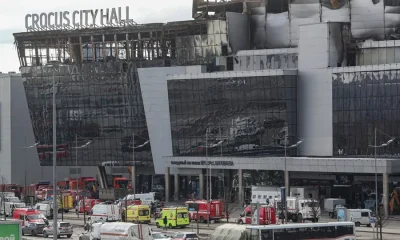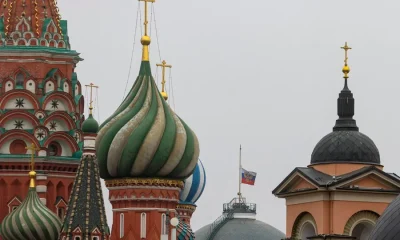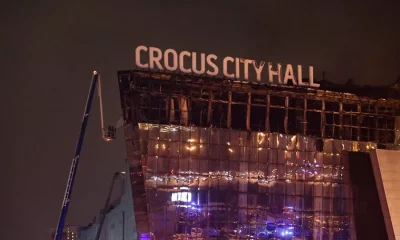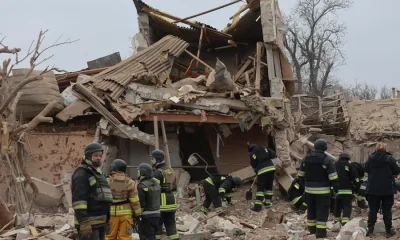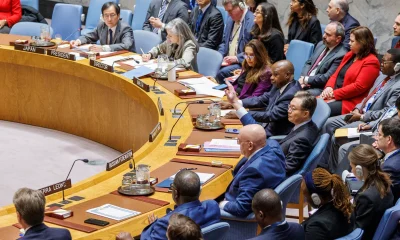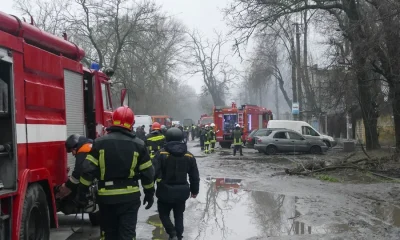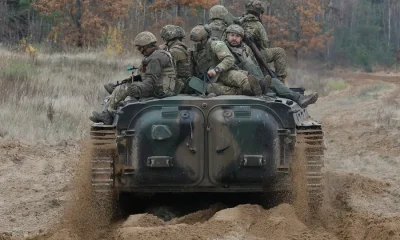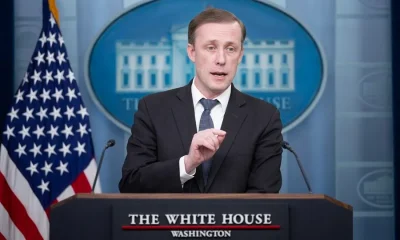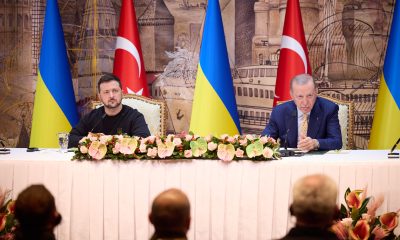International
Russia and NATO, the antagonism that can lead to direct confrontation
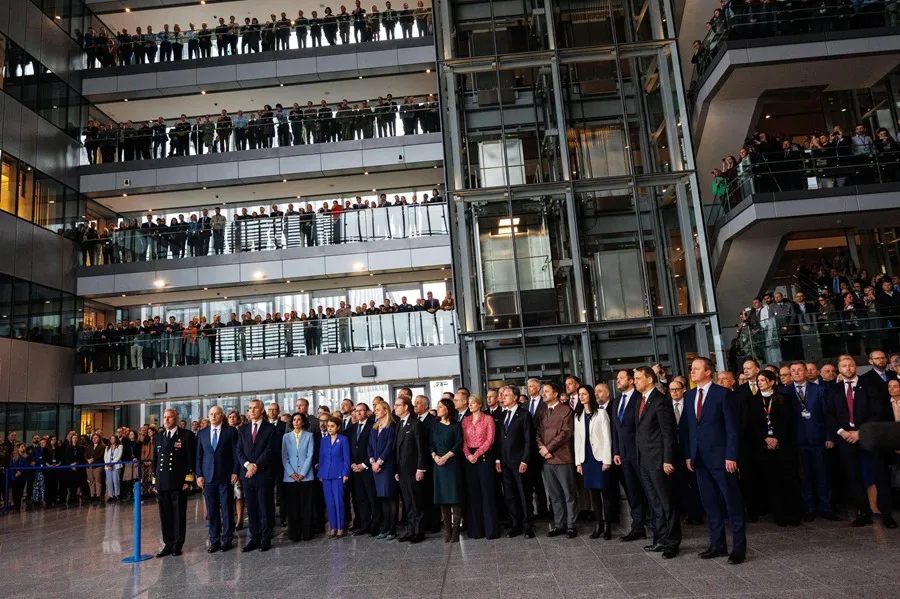
The Kremlin warned today on the 75th anniversary of NATO that relations between Russia and the Western bloc are on the verge of “direct confrontation” due to the involvement of the allied countries in the war in Ukraine.
“Relationships, practically, have now led to a level of direct confrontation,” said Dmitri Peskov, presidential spokesman, at his daily telephone press conference.
The antagonism between Moscow and the Alliance has experienced very tense moments since 1949, both in the times of the Soviet Union – construction of the Berlin Wall, Cuban Crisis, invasion of Czechoslovakia and Afghanistan – and with the Russian Federation since 1991 (bombing of Yugoslavia and the war with Georgia).
But the tension has reached unsuspected limits since Russia started the military campaign in Ukraine in February 2022, a conflict that has strengthened NATO, something that took the Kremlin on guard off guard.
“NATO continues to demonstrate its essence, since NATO was conceived as an alliance, configured, created and directed by the United States as an instrument of confrontation, especially on the European continent. And, in this regard, it continues to fulfill its function,” said the presidential spokesman.
Peskov assured that this block “at the present time does not contribute in any case to the security, predictability and stability of security on the continent.”
“Contrary, it is a destabilizing factor,” he said.
In addition, he accused the allies of continuing their approach and reinforcing the presence of their military infrastructure near the Russian border, one of the arguments used at the time by Moscow to invade the neighboring country.
The Kremlin has been accusing NATO of participating “directly” in the war in Ukraine for months by supplying huge amounts of weapons to Kiev, which, according to Moscow, will not prevent its victory and will only prolong the conflict.
“The NATO countries, the Alliance itself, is not that it is constantly increasing (their presence), but that it has already been involved in the conflict in Ukraine,” Peskov said.
In turn, Moscow has condemned the comments of some European leaders – specifically, the French President, Emmanuel Macron – on the possible sending of troops to Ukraine, something that the White House has totally ruled out.
In fact, the Kremlin today denied “plans to make contacts at the highest level,” in particular with Macron.
“President Vladimir Putin remains open to dialogue with those who express an interest in developing relations with our country,” said Peskov, who reiterated that the president “always” is willing to sit down and negotiate “to solve the most complex global and regional problems.”
At the same time, Russia has denied plans to attack NATO member countries and that it has “aggressive intentions” against Poland and the Baltics.
“Now they say that Ukraine is about to lose, which cannot be allowed, since as soon as Ukraine loses, Russia will attack NATO. Our president has already said it, ‘silly and nonsense,’” said Sergey Lavrov, Russian Foreign Minister.
That does not detract from the fact that the Baltics have decided to strengthen security and that Finland and Sweden, neutral countries with pragmatic relations with Moscow for decades, decided to join NATO.
That is considered Putin’s biggest miscalculation, since Russia now has 1,300 kilometers more border with the Alliance than before the war.
The brutal attack on March 22 against a concert hall on the outskirts of Moscow, which left 145 dead and highlighted the lack of foresight of the Russian security forces, has only exacerbated the tension.
The West warned about possible jihadist attacks two weeks in advance, warnings that were disqualified by Putin, who insists on the existence of a “Ukrainian print.”
“Russia behaves in such a way in the international arena that it can hardly be attacked by Islamic fundamentalists,” Putin said when meeting with the union members on Thursday.
The newspaper ‘The Washington Post’ reported that the United States even mentioned the Crocus City Hall as a possible target, news that was immediately branded as “disinformation” by Moscow.
“Today, Ukraine (…) has become an openly terrorist state,” Lavrov said.
Precisely, the defense ministers of Russia, Sergei Shoigu, and France, Sébastien Lecornu, addressed the fight against international terrorism on Wednesday in their first telephone conversation in a year and a half.
“France does not have any information that allows a link to be established between this attack and Ukraine. We ask Russia to stop manipulating,” said the official statement issued by Paris.
International
Thousands rally nationwide against Trump’s threat to U.S. democracy

Thousands of protesters gathered on Saturday (April 19, 2025) in major cities like New York and Washington, as well as in small communities across the United States, in a second wave of demonstrations against President Donald Trump. The crowds denounced what they view as growing threats to the country’s democratic ideals.
In New York City, demonstrators of all ages rallied in front of the Public Library near Trump Tower, holding signs accusing the president of undermining democratic institutions and judicial independence.
Many protesters also criticized Trump’s hardline immigration policies, including mass deportations and raids targeting undocumented migrants.
“Democracy is in grave danger,” said Kathy Valyi, 73, the daughter of Holocaust survivors. She told AFP that the stories her parents shared about Adolf Hitler’s rise to power in 1930s Germany “are happening here now.”
In Washington, demonstrators voiced concern over what they see as Trump’s disregard for long-standing constitutional norms, such as the right to due process.
International
ACLU seeks emergency court order to stop venezuelan deportations under Wartime Law

The American Civil Liberties Union (ACLU) on Friday asked two federal judges to block the U.S. government under President Donald Trump from deporting any Venezuelan nationals detained in North Texas under a rarely used 18th-century wartime law, arguing that immigration officials appear to be moving forward with deportations despite Supreme Court-imposed limitations.
The ACLU has already filed lawsuits to stop the deportation of two Venezuelan men held at the Bluebonnet Detention Center, challenging the application of the Alien Enemies Act of 1798. The organization is now seeking a broader court order that would prevent the deportation of any immigrant in the region under that law.
In an emergency filing early Friday, the ACLU warned that immigration authorities were accusing other Venezuelan detainees of being members of the Tren de Aragua, a transnational criminal gang. These accusations, the ACLU argues, are being used to justify deportations under the wartime statute.
The Alien Enemies Act has only been invoked three times in U.S. history — most notably during World War II to detain Japanese-American civilians in internment camps. The Trump administration has claimed the law allows them to swiftly remove individuals identified as gang members, regardless of their immigration status.
The ACLU, together with Democracy Forward, filed legal actions aiming to suspend all deportations carried out under the law. Although the U.S. Supreme Court recently allowed deportations to resume, it unanimously ruled that they could only proceed if detainees are given a chance to present their cases in court and are granted “a reasonable amount of time” to challenge their pending removal.
International
Dominican ‘False Hero’ Arrested for Faking Role in Nightclub Collapse That Killed 231

A man identified as Rafael Rosario Mota falsely claimed to have rescued 12 people from the collapse of the Jet Set nightclub in Santo Domingo—a tragedy that left 231 people dead—but he was never at the scene.
Intelligence agents in the Dominican Republic arrested the 32-year-old man for pretending to be a hero who saved lives during the catastrophic incident, authorities announced.
Rosario Mota had been charging for media interviews in which he falsely claimed to have pulled survivors from the rubble after the nightclub’s roof collapsed in the early hours of April 8, during a concert by merengue singer Rubby Pérez, who was among those killed.
“He was never at the scene of the tragedy,” the police stated. The arrest took place just after he finished another interview on a digital platform, where he repeated his fabricated story in exchange for money as part of a “media tour” filled with manipulated information and invented testimonies.
“False hero!” read a message shared on the police force’s Instagram account alongside a short video of the suspect, in which he apologized: “I did it because I was paid. I ask forgiveness from the public and the authorities.”
-

 Central America5 days ago
Central America5 days agoPetro questions Ecuador’s vote, cites reports of military control and arrests
-

 International4 days ago
International4 days agoArsenal stun Real Madrid at the Bernabéu to reach Champions League semifinals
-

 International3 days ago
International3 days agoDominican ‘False Hero’ Arrested for Faking Role in Nightclub Collapse That Killed 231
-

 Central America3 days ago
Central America3 days agoNicaraguan Exiles to Mark 7th Anniversary of 2018 Protests with Global Commemorations
-

 International4 days ago
International4 days agoBogotá residents line up for yellow fever vaccine amid national alert
-

 International4 days ago
International4 days agoDeSantis’ immigration crackdown sparks alarm in Venezuelan Communities in Doral
-

 International2 days ago
International2 days agoACLU seeks emergency court order to stop venezuelan deportations under Wartime Law
-

 Central America2 days ago
Central America2 days agoUN complaint filed against Costa Rica over detention of migrant children
-

 International4 days ago
International4 days agoMexico refuses to restore ties with Ecuador while Noboa remains in office
-

 International11 hours ago
International11 hours agoThousands rally nationwide against Trump’s threat to U.S. democracy
-

 International5 days ago
International5 days agoColombia: Search continues for missing limb of italian scientist found dismembered














